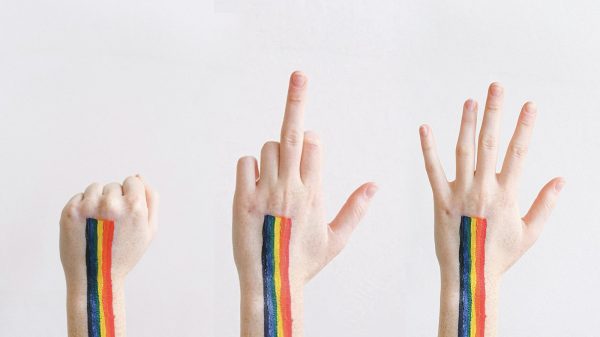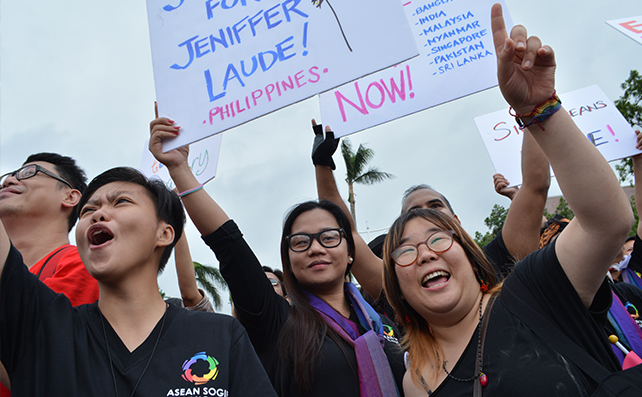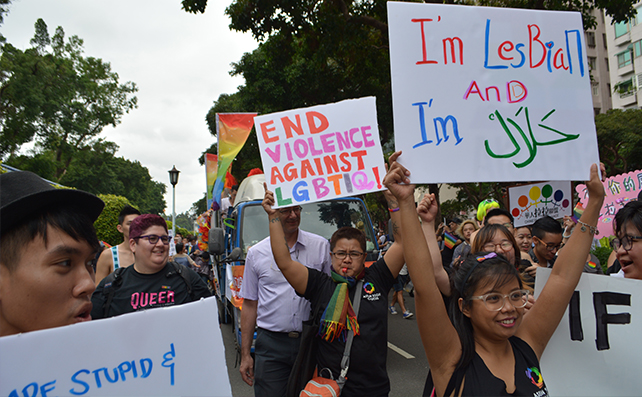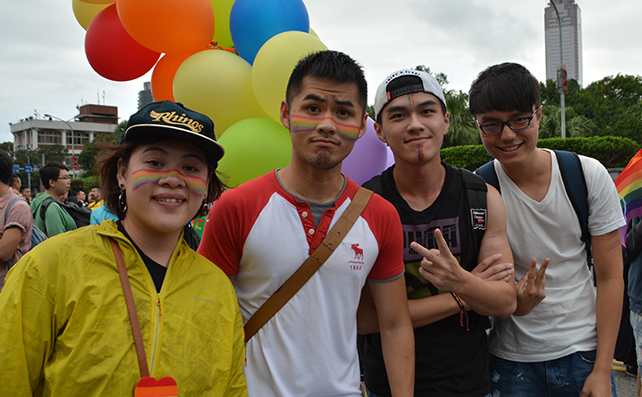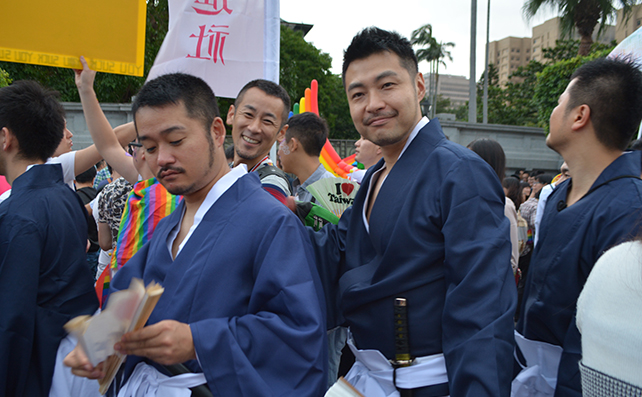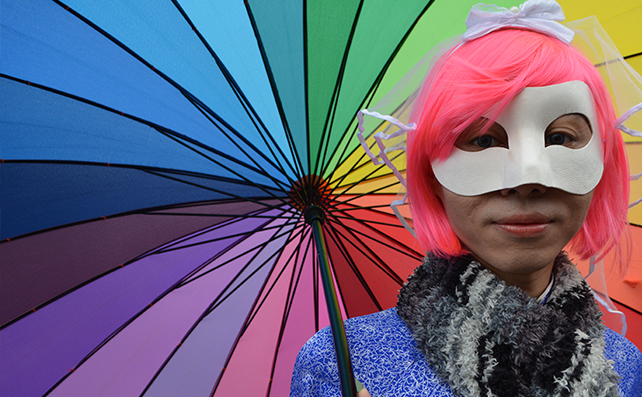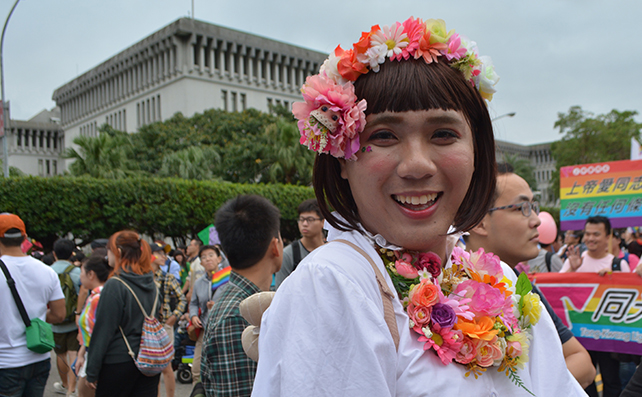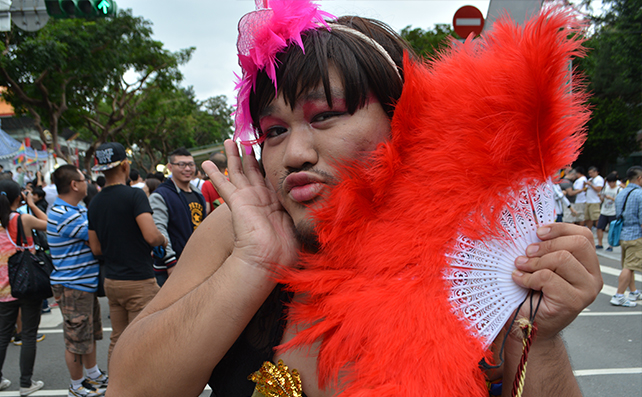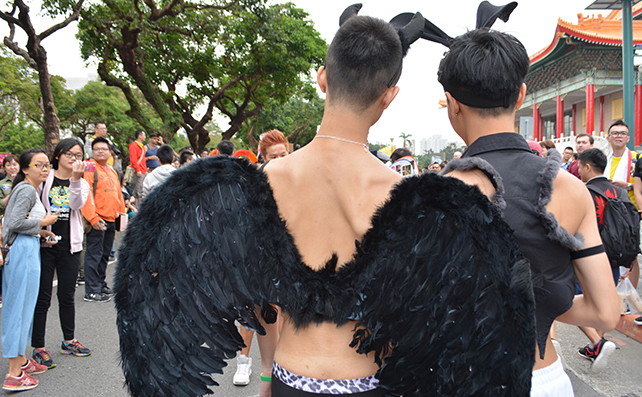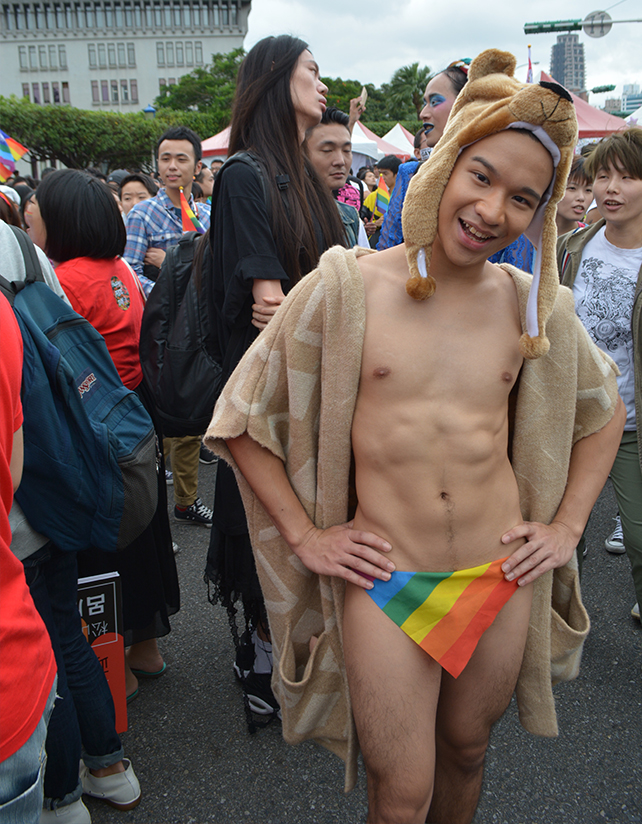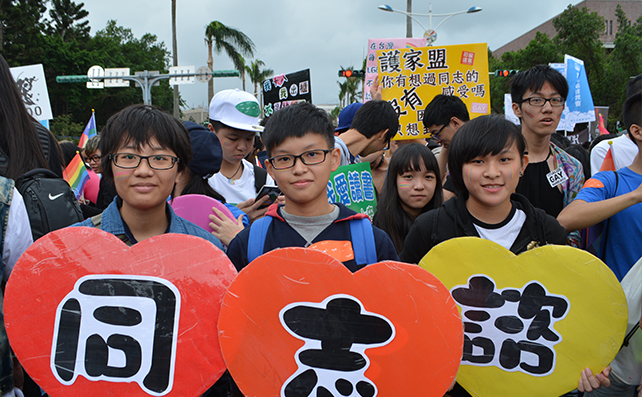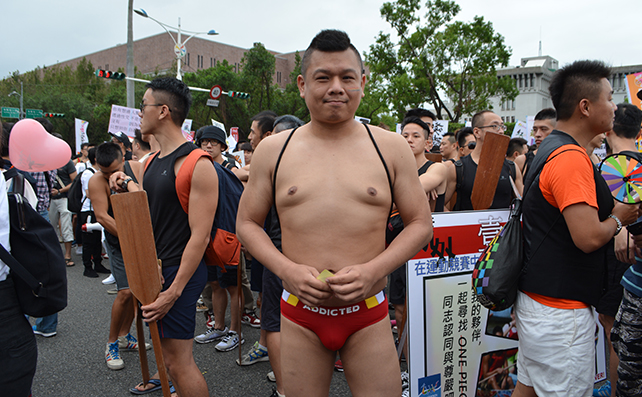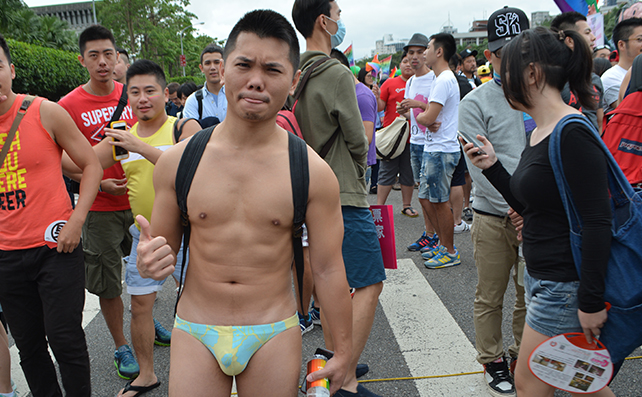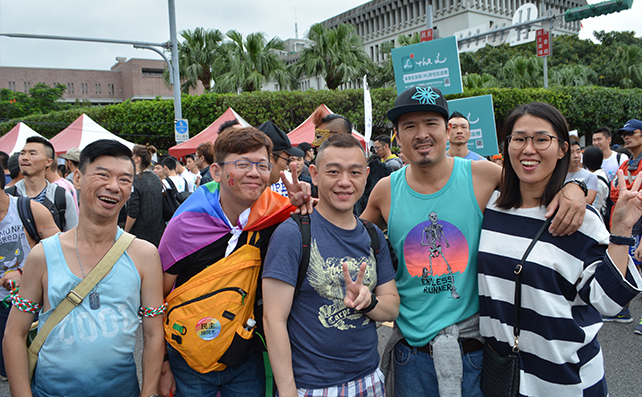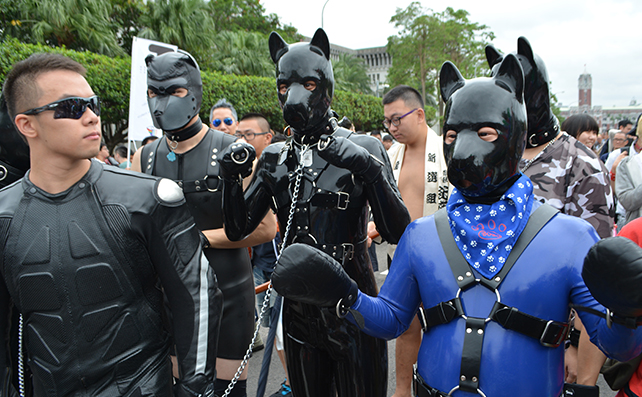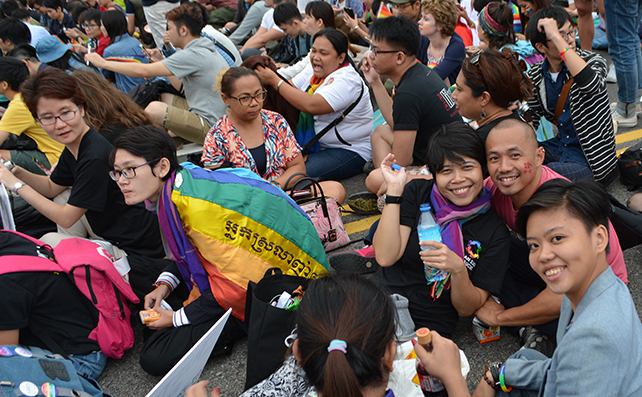TAIPEI, TAIWAN – Taiwan’s lesbian, gay, bisexual, transgender, queer and intersex (LGBTQI) community stepped out for the 13th Taiwan LGBT Pride to “challenge social norms related to age, sex and gender that restrain us from expressing our true selves”.
Themed “Act who you are, not your age”, this year’s gathering drew an estimated 70,000 – continuing the upward trend, with approximately 65,000 people witnessing last year’s Pride. The gathering also culminated the largest LGBT conference in Asia, the almost week-long ILGA Asia Conference 2015 that was similarly held in Taiwan.
In a statement provided to the media, the Taiwan LGBT Pride Community, the organizer of the annual event, stated that “each of us could face at different ages the demands or even oppression caused by the various norms associated with age, sex and gender”.
In the case of Taiwan’s LGBTQI community, for instance, youths are affected by the Gender Equity Education Act that was passed in 2004 to “impose different standards based on one’s sex, resulting in varied behavioral restraints for individuals of different ages and of different sexes.” The law has been criticized for “limiting the possibilities of teenagers to explore and develop diverse interpersonal interactions”.
At the other end of the spectrum, for the older LGBTQI people, is the continuing hindering of LGBTQI couples to marry “because they are not capable or suitable of reproducing.”
Taiwan LGBT Pride Community, therefore, stated that “we would like to emphasize that ignoring the sexuality of individuals of different ages and excluding dissimilar others from the community would produce more closets and oppression, contributing to a society that disregards diversity and reinforces exclusion.”
FILIPINO AND ASIAN LGBT PRESENCE
Now largely considered as Asia’s biggest Pride celebration, Taiwan’s 2015 Pride also saw the presence of Filipinos who highlighted issues affecting LGBTQI people in the Philippines.
According to Outrage Magazine publishing editor Michael David dela Cruz Tan, who was at Taiwan LGBT Pride 2015, participating in the international gathering “can be considered in various ways.”
“It’s a show of solidarity with other LGBTQI people, particularly those also in Asia, who are in similar situation/s as we are. Western countries may boast of the advances achieved for the LGBTQI community; but for LGBTQI people all over Asia, those advances continue to be unfulfilled dreams.”
But Tan said that taking part in celebrations of Pride in various parts of the world “ensures that our issues – no matter where we may be – are highlighted. The cliché that we live in a connected world remains true. So really, our struggles unite us because we combat many of the same issues no matter where we may be living as LGBTQI people.”
For his part, social psychologist Eric Manalastas of the Psychological Association of the Philippines (LGBT Psychology Special Interest Group) said that joining Taiwan LGBT Pride 2015 allows those who do “to feel connected with something bigger than our individual or even local selves – a bigger Asian community celebrating love, freedom, and bright possibilities.”
Transpinay Raine Cortes from the ISEAN secretariat added that “LGBT Pride is about the community itself regardless of nationality. It’s a celebration of pride and unity of the LGBT sector from different walks of life.”
For Eva Callueng of Babaylanes Inc. and POC Pinoy LGBT Channel, “the participation of non-Taiwanese/foreigners in the Pride parade in Taipei is, for me, important because it signifies solidarity in the community. Through participation of people from other countries, we demonstrate that each and every LGBT community is a part of a bigger whole. We are no different from each other and their struggle is our struggle.”
Philippines-centric LGBTI issues raised during Taiwan’s Pride included: the lack of an anti-discrimination law in the Philippines, and the need for an anti-discrimination bill to be passed ASAP; LGBTQI-related hate crimes, as exemplified by the killing of transwoman Jennifer Laude allegedly in the hands of American serviceman Joseph Scott Pemberton; and inclusion in LGBTQI discussions of issues of other minority groups, e.g. intersex population.
Meanwhile, LGBTQI activist Candy D. Yun of the Korean Sexual Minority Culture and Rights Center said that supporting Taiwan’s LGBTQI community is important just as marriage equality is being pushed there as part of human rights. “For me, (our support) shows them our solidarity with the movement.”
Yun added that being seen in Taiwan also highlighted that “every country has a different situation; about the diversity of Asia. Our participation raises our voices in other countries.”
Also, “every single Pride is fun,” Yun said. “I recommend to other activists to visit the Pride parade in other countries. It will give us new ideas about our hosting of our Pride events as well.”
ISSUES FROM WITHIN
However, Taiwan’s Pride did not pass without issue, with some members of Taiwan’s LGBTQI community lamenting the “hijacking” of an LGBTQI event because of the lack of opportunity to highlight “non-mainstream LGBTQI issues.”
LGBT activist 徐豪謙, for instance, noted how – with Taiwan’s elections slated next year – many politicians attempted to spread goodwill to the LGBTQI community. Sadly, “these people only talk about the politically correct and popular issue of same-sex marriage, as if we don’t have other issues to face.”
The issues of LGBTQI people in the sex industry were also relegated to the sidelines, with claims that LGBTQI sex workers actually not allowed to speak because too many groups were already going to speak, and so there had to be “trade-offs” (in this case, their getting kicked out, while politicians were allowed to speak).
All in all, nonetheless, Taiwan LGBT Pride Community hopes that this year’s Pride allowed LGBTQI people to “show up and occupy public space… to initiate more dialogues within the society.”
Pride started in Taiwan in 2003. Four Pride parades are now held in Taiwan every year. Aside from Taipei, celebrations also happen in Kaohsiung, Hualien and Taichung.














